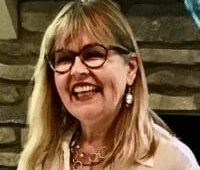IFS and Addictive Processes
Bridging the Gap Between Psychotherapy and RecoveryWhen therapists fail to recognize that the primary goal of addict parts is to protect clients, they may end up getting sidetracked—or worse, causing... Read more
Pulling Our Teens Back from Internet Addiction
A Family's Nightmare Search for HelpA family confronts the reality that parents alone are ill-equipped to protect their children from online dangers. Read more
Can True Love Be Designed?
Transforming How We Experience and Express LoveDiscover two models of love and how distinguishing between them can help therapists support clients in designing a conscious relationship. Read more
7 Benefits of Concurrent Couples Therapy
Revisiting an Underappreciated ApproachConcurrent couples therapy has advantages over conjoint therapy that get overlooked by many therapists. Discover 7 ways concurrent couples therapy can improve... Read more
Experience the New Digital Magazine!
The Networker has won awards not only for its insightful articles, but for its beautiful design. Want to flip through the latest issue? Check out the fully... Read more
Supercharging Art Therapy with AI
A Surprising New Tool to Enhance Trauma HealingUsing AI art therapeutically is still a novel idea in the field of art therapy. For clients wary of traditional forms of creative expression, it allows them to... Read more
The Client Who's Tried Everything
ACT and ISTDP Tackle One Challenging CaseHow do you approach a first session with a client who's tried all kinds of different therapies and yet continues to struggle? Steven Hayes, the cofounder of... Read more
9 Top Apps Therapists Recommend to Clients
From Mindfulness to Your Natal ChartDiscover the top therapist recommended apps to improve your mental health and well-being, including an app that rates mental health apps! Read more
The Trauma of Parental Abandonment
Helping Survivors Feel Safe, Minimize Shame, and Heal Old WoundsHere's a five-step process for working with survivors of parental abandonment that helps mitigate self-blame and build trust with the therapist. Read more
Editor's Note: January/February 2025
Spirituality and PsychotherapyMany therapists have been trained to avoid exploring people’s religious or spiritual beliefs, lest they accidentally question them or unknowingly pull at the... Read more
Racial Trauma Assessment Tool
The Trauma Symptoms of Discrimination Scale (TSDS)Support your BIPOC clients in gaining clarity about the frequency and types of discrimination they’ve experienced as they heal from racial trauma. Read more
The Beauty of Longing and Melancholy
Susan Cain Celebrates the Sensitive Client"Bittersweet" invites us to better understand and celebrate the wistful, sensitive people in our lives—and in our therapy practices. Read more
Breaking the Cycle of High-Functioning Codependency
When Helper’s High Goes Too FarMany therapists believe their intense care and concern for clients is a form of selfless love. Maybe it’s time to rethink that. Read more
The Sacred Work of Heartbreak
Relinquishing the God-like Fantasy of LoveIn a society where most people spend more time on dating apps than in places of worship, the pursuit of a romantic partner has become a holy quest. Read more



























